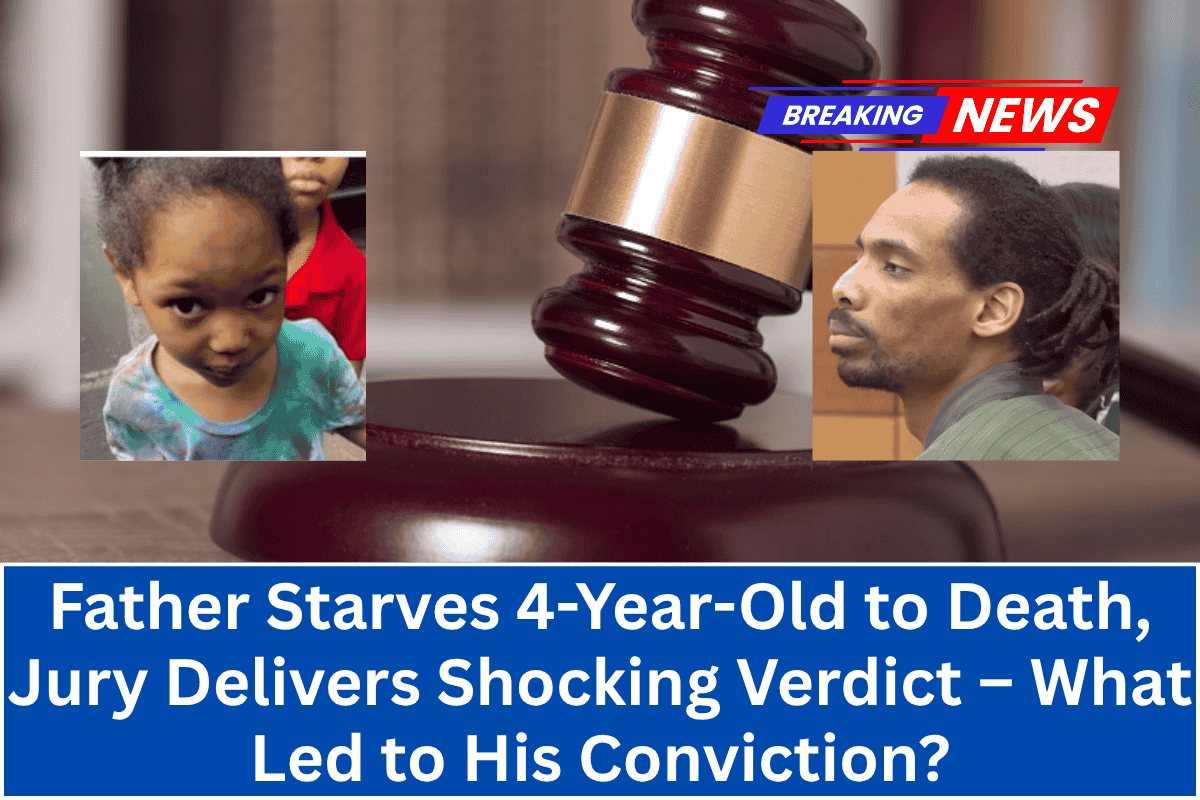A Georgia father, Rodney McWeay, has been convicted of fatally starving his 4-year-old daughter, Treasure McWeay, after a jury found him guilty of 14 charges, including malice murder, felony murder, and child cruelty.
The heartbreaking case sheds light on a disturbing history of abuse and neglect that ended in the tragic death of a young girl who weighed only 24 pounds and had less than an ounce of water in her stomach when she died.
A Life Lost to Abuse and Neglect
On December 11, 2023, Treasure McWeay was pronounced dead at Hughes Spalding Children’s Hospital in Atlanta after being transported there in an unresponsive state. The 4-year-old’s death came after she had been starved, malnourished, and severely neglected by her father.
Treasure’s weight, less than half of what it should have been for a child her age, spoke volumes about the extent of the abuse. Her body contained so little water that it was clear she had been denied even the basic sustenance needed to survive.
When police responded to the call regarding Treasure’s condition, McWeay was absent from the scene. His two sons were also found to be suffering from severe malnutrition and were immediately hospitalized.
The authorities soon discovered the physical evidence of McWeay’s abusive behavior, leading prosecutors to label the home as a “house of horrors.”
The ‘House of Horrors’ and McWeay’s Control
Over the course of the trial, evidence showed that McWeay controlled every aspect of his children’s lives, including limiting their movement and access to necessities. His two sons, who were also victims of neglect, had been severely malnourished.
The children were kept in one room, with the father holding dictatorial control over when they could leave and what they could access. Surveillance cameras were set up around the house, including several focused on the children’s beds.
McWeay’s home was void of basic supplies like food and clothing for the children, though he kept operational cameras to monitor their every move.
Deputy District Attorney Marshal Hodge described McWeay’s behavior to the jury: “He controlled everything, so no one got in — not even law enforcement. Until Treasure died.” This control extended even to the point of blocking authorities from entering the home.
The cameras, coupled with McWeay’s strict, authoritarian rule, created an environment of complete isolation and fear for the children.
Legal Proceedings and McWeay’s Defense
The jury convicted McWeay of malice murder, felony murder, child cruelty, kidnapping, false imprisonment, and contributing to the delinquency of a minor, which all stemmed from his abusive actions.
McWeay’s lawyer argued that while the father made “some wrong decisions,” he never intended to harm his children and loved them all. This defense, however, failed to sway the jury, who found that McWeay’s actions were far from unintentional and led directly to his daughter’s death.
The prosecution presented compelling evidence that McWeay’s abuse was not a series of isolated incidents but a sustained pattern of cruelty. The death of Treasure McWeay, though tragic, served as a grim reminder of the consequences of unchecked parental control and neglect.
The Road to Conviction and the Future
McWeay was arrested nearly two weeks after his daughter’s death when law enforcement officers spotted him leaving his house and detained him.
His trial, which concluded in his conviction, highlighted the chilling extent of his abuse and control. The case has sparked further discussions about child protection, parental rights, and the dangers of unchecked authority in domestic settings.
As McWeay now faces the likelihood of spending the rest of his life in prison, the McWeay family’s story is a painful reminder of the importance of vigilance in protecting children and ensuring that cases of abuse and neglect are identified and addressed before tragedy strikes.






